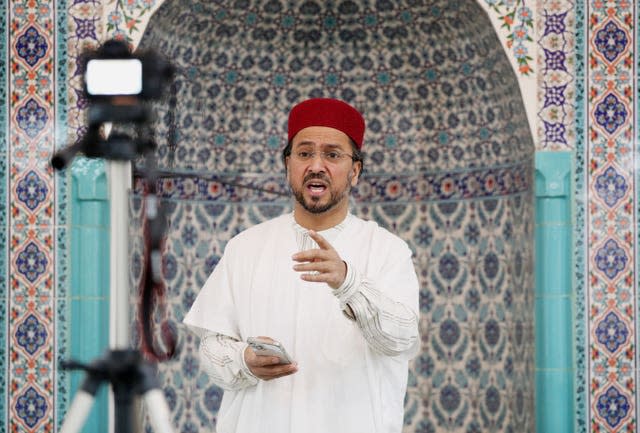Muslim leaders disappointed in ruling for ‘not defending freedom of religion’
Muslim leaders have told of their disappointment in a court ruling upholding a ban on prayer rituals at a London school as they criticised a minister’s comments on the issue as divisive and sensationalist.
Imam Ajmal Masroor said the High Court ruling showed a “fundamental misunderstanding” of what it means to be a Muslim, after a judge concluded the ban did not interfere with the Michaela Community School student’s rights.
The London-based faith leader told the PA news agency he would urge the student’s family to appeal against the judgment “so that we can get a more nuanced ruling on this”.

He rejected comments by the judge who said the pupil could perform “Qada” prayers – permitted by Islam to “make up” for missing prayers earlier in the day – “to mitigate the failure to pray within the allotted window”.
Imam Masroor said: “If a child is in secondary school and misses their mid-afternoon prayer for five years, that’s not an exception. That’s been imposed as a rule.”
He said there had been a “fundamental misunderstanding” of what it means to be a Muslim, adding: “As a Muslim I have to pray my five daily prayers, there is no compromise.
“It is my identity.”
The imam branded comments by equalities minister Kemi Badenoch that the ruling is “a victory against activists trying to subvert our public institutions” as “divisive”.
Calling into question what he perceived as different approaches when it comes to Christianity, he said: “If we are going to be creating a secular space in a school, should we cancel Easter break? Because that’s inspired by Christianity. Should we cancel Christmas break? Because that’s inspired by Christianity.
“Should we cancel singing the national anthem which says God Save the King? The mention of God is at the forefront of this very anthem.
“Where do we draw the line? Or is it that it’s only for Islam and the Muslims that Badenoch and others suddenly scream foul but stay silent when it’s Christianity? It’s a double standard and hypocrisy, I’m afraid.”
Dr Abdul-Azim Ahmed, who is secretary general of the Muslim Council of Wales, told PA he was “really disappointed that the court hasn’t defended a very well-established British principle of freedom of religion”.
He added: “It’s not looking for preferential treatment, it’s looking for fairness in schools. It’s looking for the basic religious freedoms which have long been a part of the British public sphere.”
Commenting on Ms Badenoch’s statement, he said: “I think unfortunately the minister’s comments are sensationalising this case and playing into a culture war and a rhetoric which doesn’t reflect the reality of what’s happening on the ground.”

 Yahoo News
Yahoo News 
